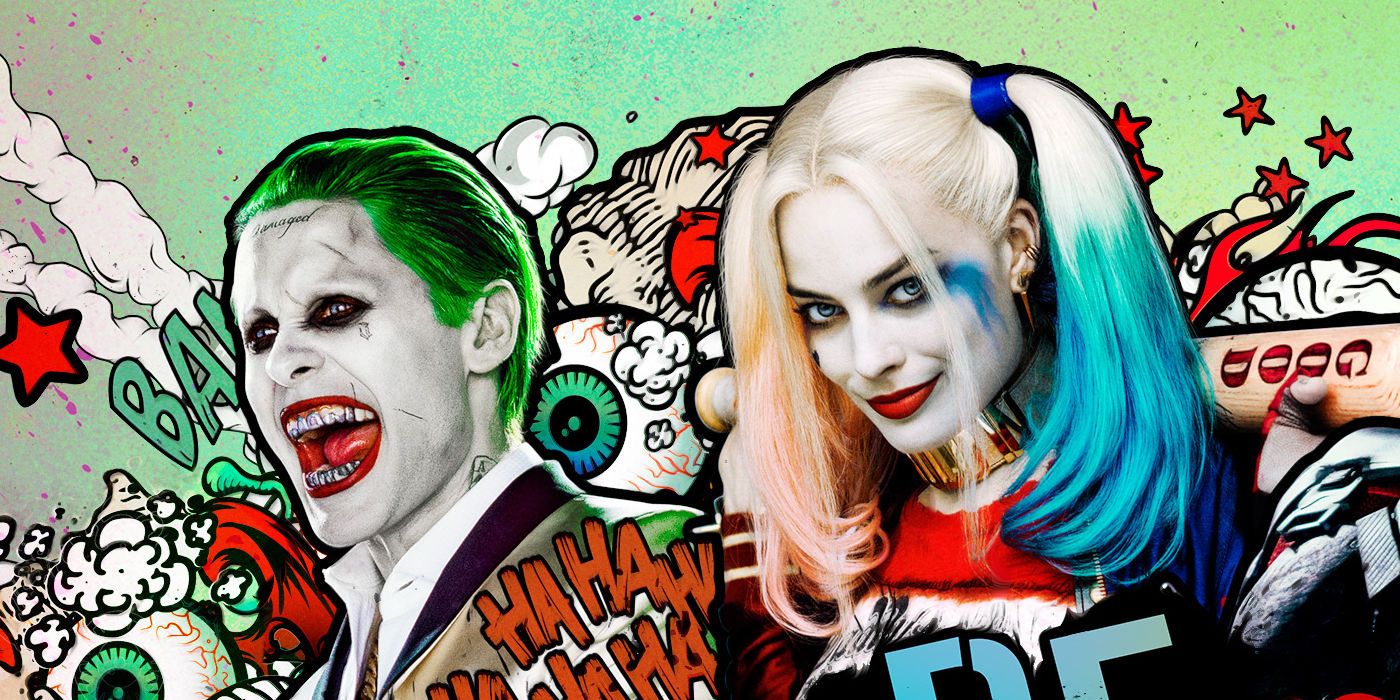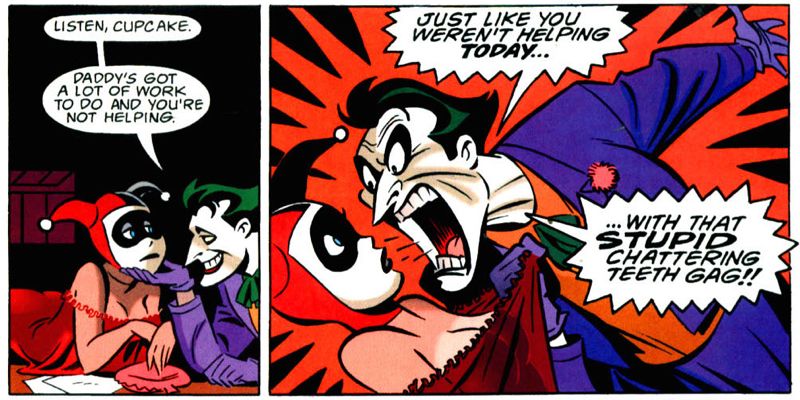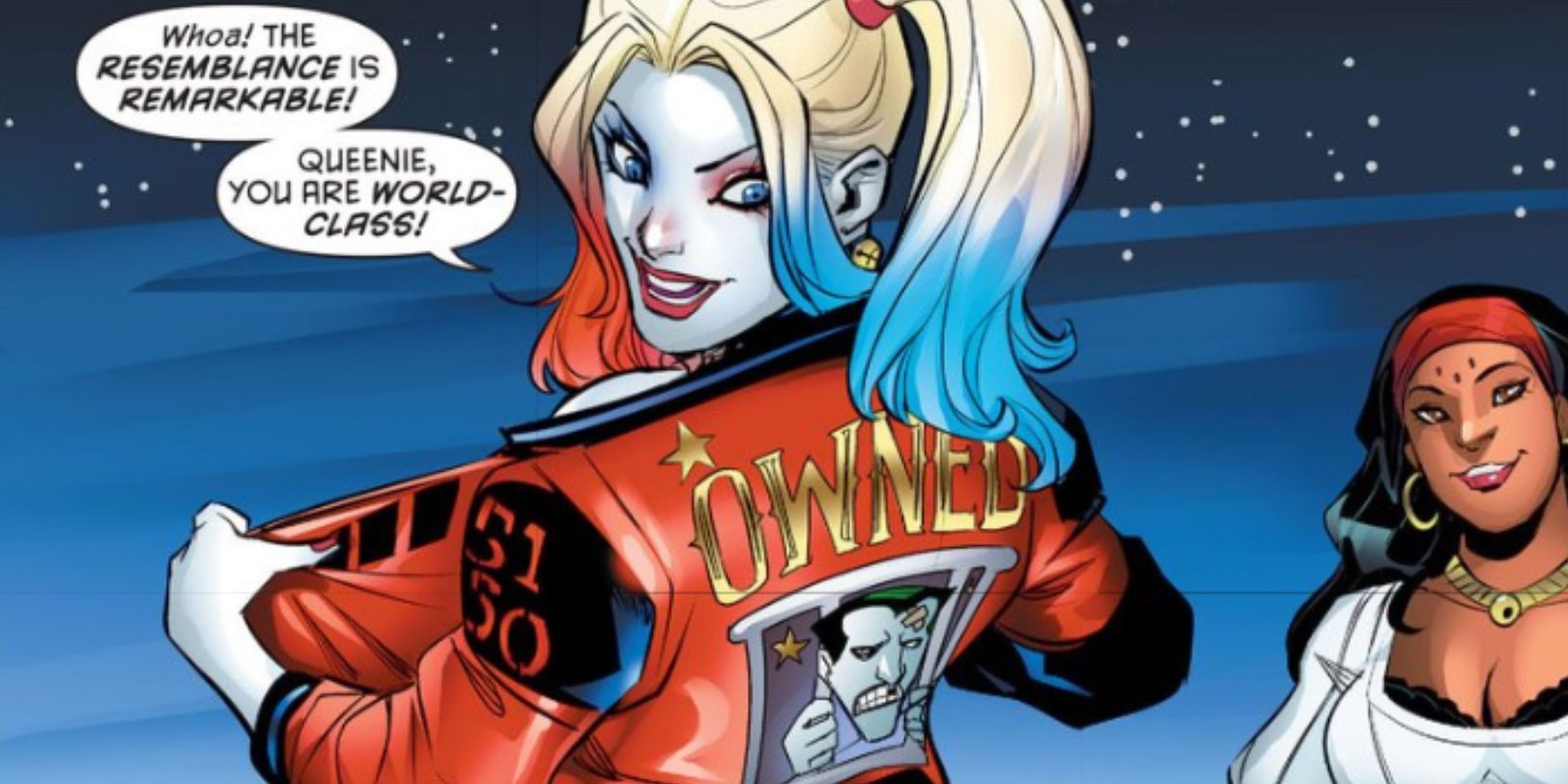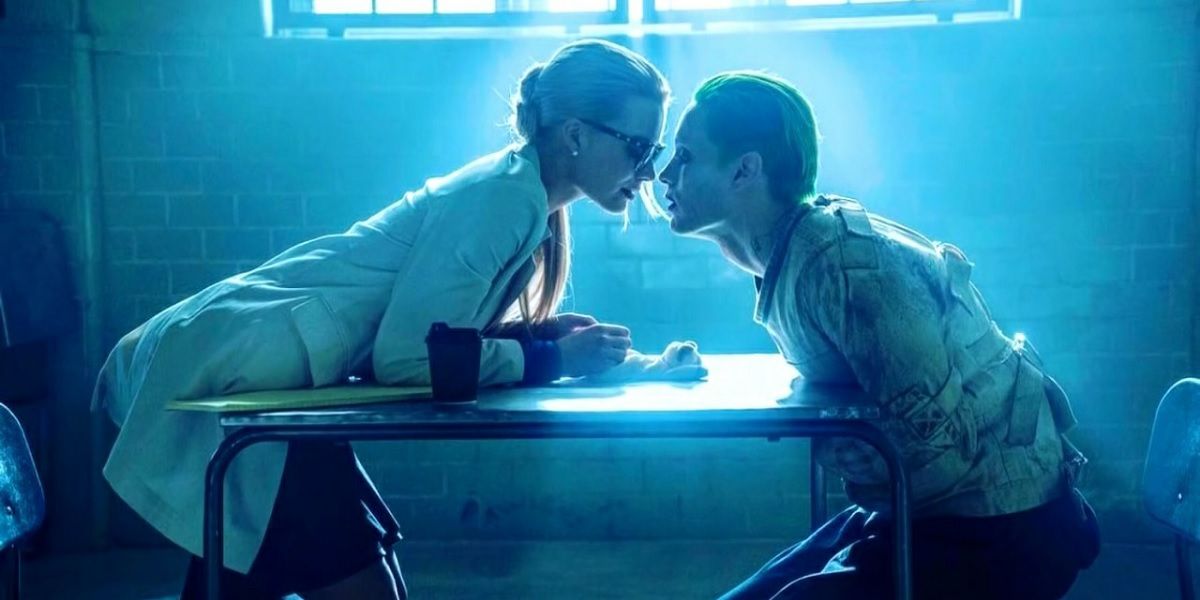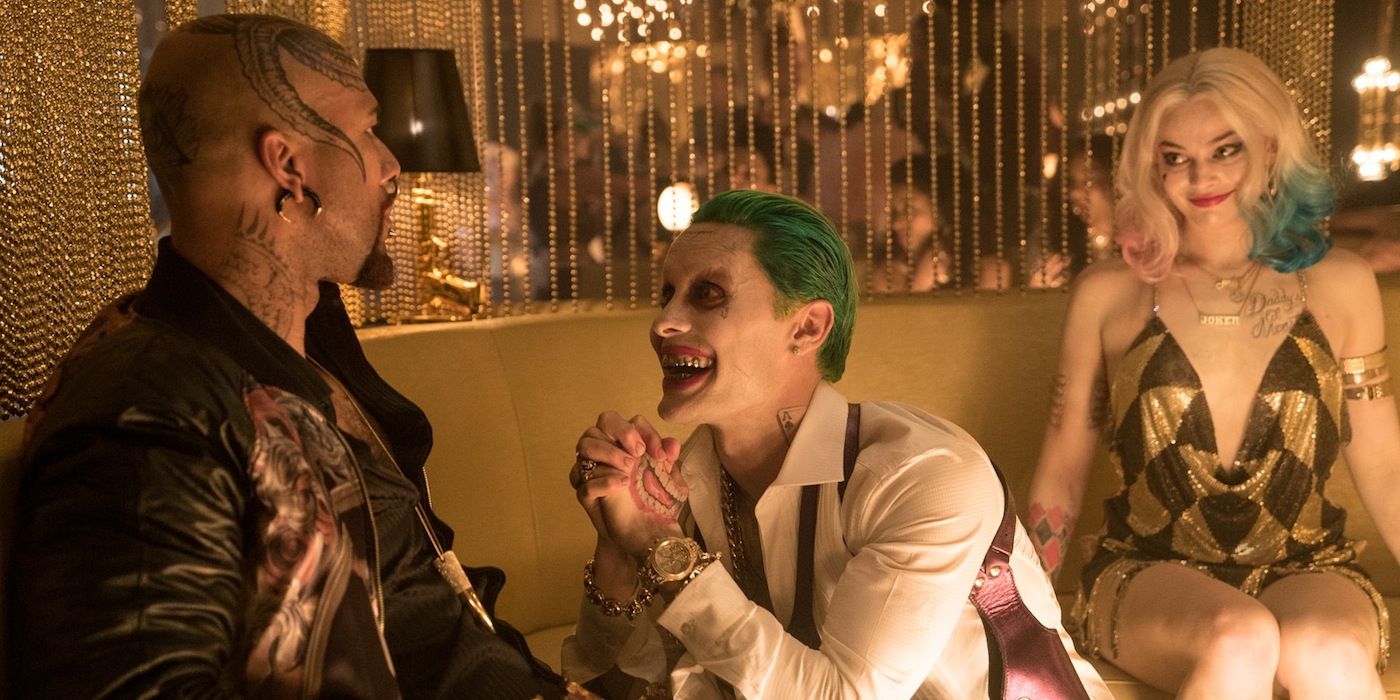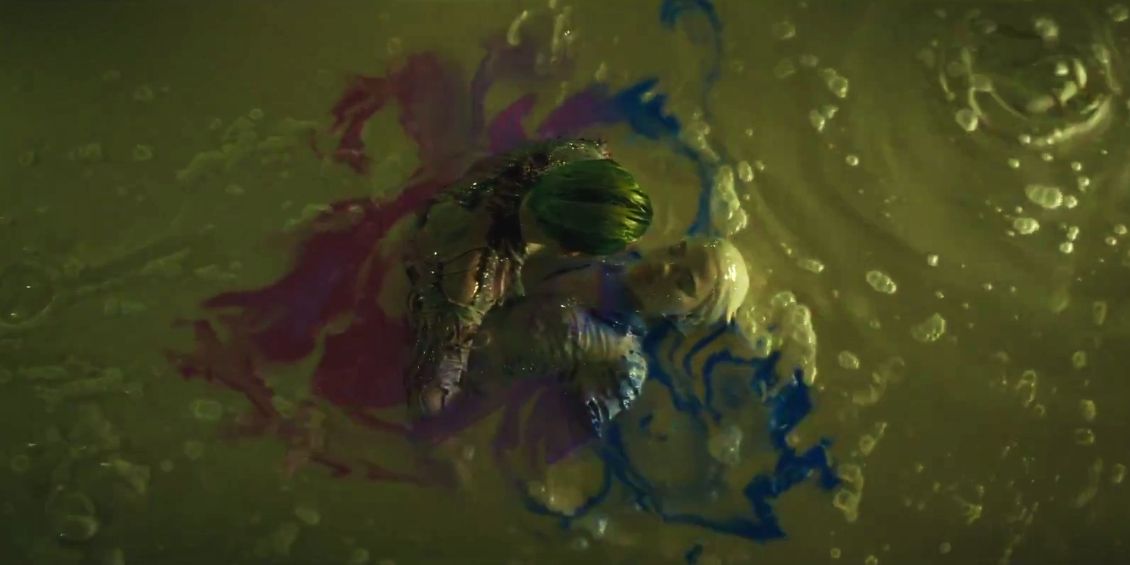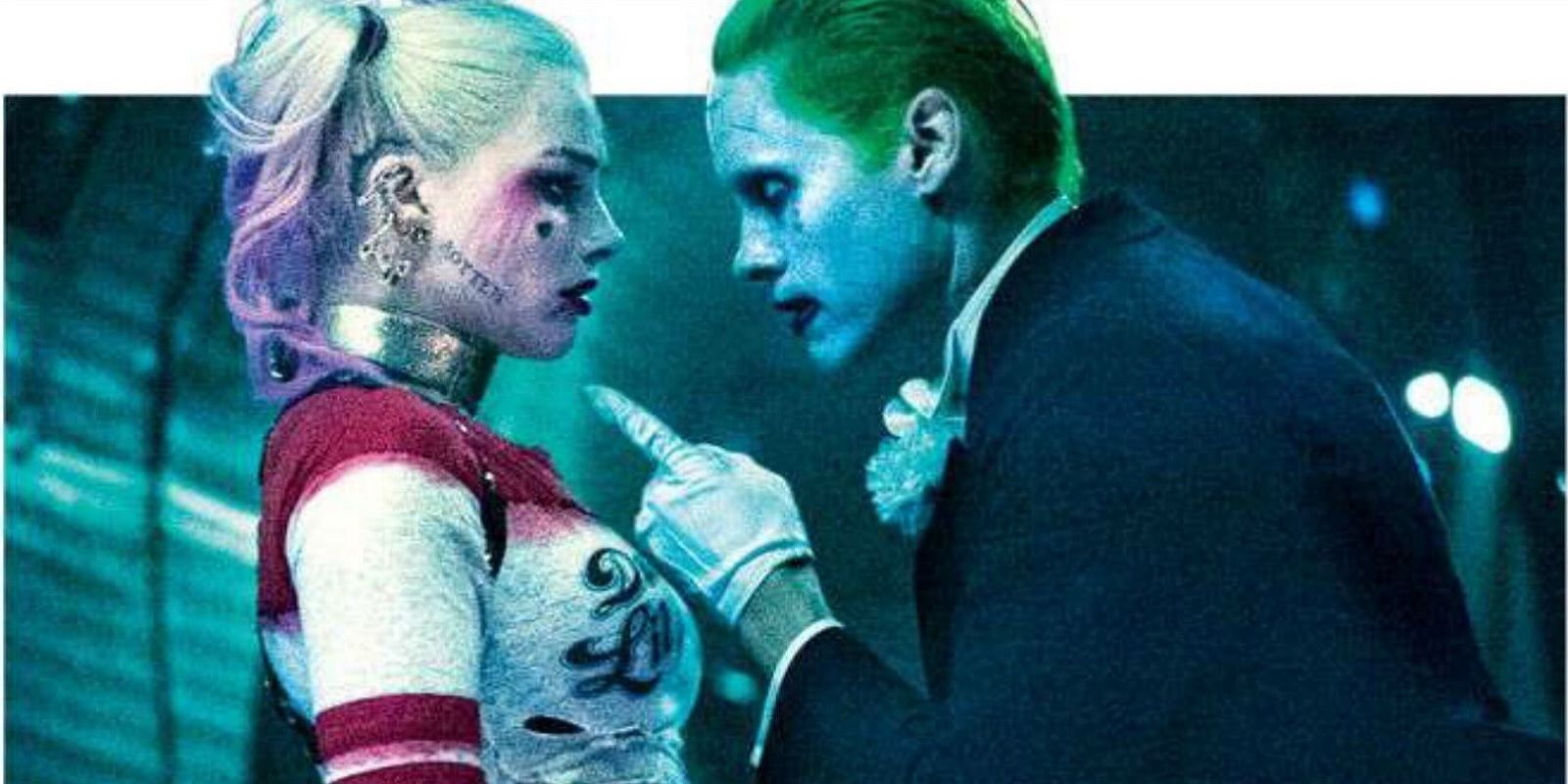[WARNING - This article will contain SPOILERS for Suicide Squad.]
-
The much hyped, highly anticipated Suicide Squad is now in theaters and generating a lot of buzz. Some of that buzz is great - like how Suicide Squad had the biggest August opening ever - yet sadly, most of that buzz has been not so great. When the review embargo lifted, Suicide Squad was hit with several bad and at times scathing reviews, to which director David Ayer and cast members responded, reigniting the debate over the opinions of critics versus those of movie fans that had previously surrounded Batman V Superman.
Still, even with a less than rousing response to the film, practically every review (read ours!) has praised Margot Robbie's performance as the Joker's deranged and dangerous girlfriend, Harley Quinn, citing her as a real highlight of the film. Jared Leto's Joker has also avoided being nearly as controversial as the initial reaction to his design would have led many to believe (possibly a symptom of his limited screen time more than anything else).
Suicide Squad is the Joker's fourth cinematic appearance while it's Harley's very first, which means the film is also the first attempt at recreating their torrid and torturous love affair for live-action. And with this film likely reaching a wider, more mainstream, and much larger audience than either the cartoons, comics or video games, how Suicide Squad presents these two crazy clowns in love will have a lasting impact on the characters and our perception of them. Is their relationship the troubled, abusive depiction that has for years been the status quo, or is Suicide Squad trying something new?
When Dr. Quinzel First Met The Joker
First introduced in Batman: The Animated Series (1992), Harley Quinn and her relationship to the Joker has been an element of Batman lore in practically every iteration since. The core traits of their interactions typically include an affair that begins when Dr. Harleen Quinzel becomes the Joker's therapist at Arkham Asylum; he charms and manipulates her with stories of failed comedy and an abusive father and soon she is head over heels in love with her patient. After becoming increasingly distressed at the rough treatment of the Joker by Batman in particular, Dr. Quinzel chooses to abandon psychiatry and her sanity, transforming herself into Harley Quinn and helping the Joker break out of Arkham.
Harley is devoted to the Joker, doing all she can to make him happy - which more often than not means assisting in all the wacky ways he tries to cause chaos and murder Batman. For his part, Joker certainly finds her useful, and having always enjoyed performing for an audience, is happy to keep her around. That is, unless she irritates him or fouls up one of his plans or just generally gets in the way of him killing Batman - his one and only obsession. That has been the dynamic for decades - Harley is obsessed with the Joker, the Joker is obsessed with Batman. And from the Joker's inherent disregard for Harley and his violent tendencies comes the very abusive and ugly nature of their relationship.
In her write-up on Harley's journey from cartoon character to movie star for Vanity Fair, Joanna Robinson points out that the abusiveness has been a key element since day one, where the animated series "made the dysfunction of their relationship obvious." As the series progressed and Harley's popularity grew, creators Paul Dini and Bruce Timm included ways in which to comment on that dysfunction - in particular, through Harley's relationship with Poison Ivy - making sure to avoid glorifying what is a toxic and unhealthy relationship. As Dini would later explain in the introduction to a 2015 deluxe edition of Mad Love, Harley's story is "a cautionary one about what happens when someone loves recklessly, obsessively, and for too long." In Harley, we can see fragments of our own failings, making her a compelling, tragic and in some ways a more relatable character.
When Harley transitioned into the comics and eventually video games, the abusive nature of their relationship became less slapstick in its depiction of violence and - as Robinson notes of the Arkham video game series in particular - was presented without "any meta-criticism of the toxic Harley/Joker relationship." Then in 2011, DC Comics rebooted and reimagined much of their fictional canon, including the story of how Dr. Harleen Quinzel became Harley Quinn. In the New 52 continuity, Harley still falls for the Joker while treating him at Arkham and helps him escape, but she doesn't fully become Harley Quinn until he throws her into a vat of acid at Ace Chemicals, recreating the accident which turned him into the Joker. The key difference in this new origin is the removal of Harley's choice in becoming a certified loon, turning her into a monster of the Joker's making - still a bad beginning for romance and one that, combined with the verbal and physical abuse, victimized Harley even more.
Ironically, in reaction to the harsher treatment from her now much crueler Puddin', the New 52's Harley broke free of the Joker, first as a member of the Suicide Squad and then in her own ongoing series. That solo series in particular - written by husband and wife team, Jimmy Palmiotti and Amanda Conner - went to great lengths to establish Harley as an independent character, turning her into more of an anti-hero than villain. She moved to Coney Island, became manager of an apartment building that's home to a literal freak show, started practicing psychiatry again at an old folks' home, joined a roller derby team, started her own gang to keep the community safe, took her relationship with Poison Ivy to a more romantic level, and when once again confronted by her ex, beat the living crap out of him in an epic and affirming beatdown. There have certainly been stumbles along the way, but DC Comics has in recent years given Harley a triumphant arc - developing her into more than the Joker's accomplice and punching bag, and moving her away from the abusive relationship which once defined her.
Their New Crazy Love Story
Now in Suicide Squad, writer/director David Ayer brings this crazy love affair to the big screen and to a wider audience than ever before. Pulling in elements from both origin stories, Ayer has created yet another interpretation of Harley Quinn - one that strives to strike a balance between a woman that's firmly independent, but still insistent on submitting herself to an abusive psychopath. As for Suicide Squad's Joker, his motivations in the film are distilled into a single purpose - getting back his girl, which is a real departure from the Batman-murdering, chaos-causing motivation he's so typically given.
Like in Mad Love and the New 52 origin, Harley meets Joker at Arkham and is instantly captivated - though why she falls for him so hard is never really explained in the context of the film. Still, his hold on her is powerful enough that he convinces her to bring him a machine gun in order to help orchestrate his escape, one that later includes armed henchmen storming the asylum. Joker's men then capture Dr. Quinzel and strap her down on a gurney, followed by the Joker giving her electroshock "therapy." It's a scene used in practically every trailer, featuring the Joker threatening not to kill her, only hurt her "really, really bad." In response, she snaps, "I can take it," which seemingly implies some level of consent on her part and is implicitly the moment when Joker first begins to fall in love (or as close as he can get) with Harley.
Sometime afterward chronologically, Joker and Harley are in Ace Chemicals, standing above a vat of chemicals. Wanting to prove her utter devotion to the Joker - to "surrender" herself to him and to "live for him" - Harley isn't pushed, but rather willingly falls into the vat. After a beat of the Joker deciding whether or not to save her, he dives in and the two share a romantic embrace and wild cackling laugh, a seeming indication the Joker does carry some level of affection for Harley. At the very least, he's intrigued by her.
With Harley now fully transformed into the Joker's equally pale-skinned and tattooed companion, Suicide Squad features two more flashbacks of the pair before the events in the present - a scene in a club where Joker teasingly offers Harley as a gift to Monster T (Common) before shooting him; the other a scene where Batman rides on the hood of the Joker's car, which then careens off a bridge and into the river. The club scene puts both an emphasis on Joker's controlling of Harley, with him literally giving her over to another man, while also implying it's a game she's playing along with by having her rebuke Monster T after he appears uninterested. The scene of the car crash in the river, too, is a bit of a contradiction, with Joker leaving her to drown and be captured by Batman, only to then spend the rest of the film trying to get her back.
Making the Joker's sole purpose in the film rescuing Harley is not only a huge departure from how their relationship has been previously depicted, it casts the subplot as downright romantic in its portrayal. Coupled with Suicide Squad's decision to not include any clear examples of abuse on either the Joker or Harley's part, instead tinging any violence in their relationship with overtones of consensual sadomasochism, the film gives us little reason not to root for their reunion. For fans familiar with Harley and Joker's difficult past, that's a jarring decision, but for those viewers less familiar with the ugly nature of their relationship it could become even more problematic.
Twisted Love or Toxic Abuse?
While nothing about the Joker or Harley is healthy or enviable in Suicide Squad - they are, after all, insane and violent criminals - the film doesn't appear interested in exploring the troubling and messy reality of abuse that's baked into Joker and Harley's dangerous push-pull dynamic. There are no arguments between the two, never once does the Joker grow exasperated or raise his voice to her (or she to him), and there is no pattern or cycle of abuse, either verbal or physical, repeated between them. Without such instances, as uncomfortable as they may be to watch, what are audiences expected to think of the relationship? Surely not as the obvious depiction of domestic abuse their relationship has been used as in the past, where Joker was a clear abuser and Harley was trapped by both her love and obsession.
Instead, the film seeks to present their relationship as rooted in codependency with shades of BDSM, yet even with this it neglects to take the time imbuing that relationship with any complexity or nuance. Did Harley understand the enormity of what she was getting herself into with the electroshock or the jump in the chemicals? Without experiencing those therapy sessions, we don't have a starting point for Harley's frame of mind before falling in love with the Joker. Does this Joker come to rely on Harley as he does in the comics and cartoons? What's the evidence of a real partnership? As it's portrayed in this film, their relationship is all highs and no lows, with little to no time given to exploring what would make a relationship of this nature both compelling and dangerous.
In essence, Suicide Squad removes what many find so unseemly and problematic about the popular pairing, making their twisted romance more palatable for audiences. We know there were scenes filmed that would have included more overtly abusive behavior, but all of that is cut in favor of a storyline where the Joker is here to rescue his best gal and she's only too happy to be reunited with him. That's certainly one way to present that relationship, but for a PG-13 film aimed at teenagers (the Hot Topic crowd, if you will) it verges on being irresponsible and comes dangerously close to glorifying what has been, historically, quite a toxic relationship - especially with merchandise hailing the pair as "relationship goals."
The danger of fans romanticizing Joker and Harley's relationship has always been present given their popularity, but with each subsequent retelling the severity of their situation becomes less and less apparent. What was once a one-sided love affair steeped in abuse that made sure to highlight the damaging effect it had on Harley, is now a more of a romance between two fools just crazy in love. Even Harley's vision, in where she dreams of being a wife and mother with the Joker, doesn't come across as incongruous with their relationship as presented in the film.
The Joker is also shown, however briefly, with an assortment of baby onesies, suggesting that at least on some level he too longs for a family with Harley. What does this imply about the direction of their relationship in DC Extended Universe? Reunited in the end, Suicide Squad seems to be implying to two are perfect match and that we should feel good about them being together. Could a future film - possibly that rumored Harley Quinn spinoff movie - take the time to actually examine why their relationship is a toxic one, or would it only continue with this fantasy?
Suicide Squad may have spared us from witnessing the worst of the Joker's cruelty, but in choosing to not include the ugliness of their relationship, we are also denied a Harley who seeks an identity outside of the Joker. For as much as Harley is on her own in the film, building relationships within the Skwad (and Deadshot in particular), her Puddin' is never far from her mind. While in the comics Harley is flourishing, allowed to grow and develop separately from the Joker, Suicide Squad isn't interested in giving Harley the same opportunity - choosing instead to keep Harley and Joker firmly a item, and presenting no reason to wish them apart.
We don't yet know for sure where Joker and Harley will again appear in the DCEU, but it's almost certain they'll return. Their introduction in Suicide Squad is only the beginning, and though this film was robbed the opportunity of examining their sick love in an honest way (only another casualty of its rushed development), we can only hope their relationship remains an ill-fated one. Both Harley and the Joker stand to be more interesting characters separately than they do together, continuing to change and evolve on their own while always leaving the potential for a messy and unpredictable reunion.
Next: The DC Extended Universe Needs a Course Correction
Suicide Squad is in theaters now. Wonder Woman opens on June 2, 2017; Justice League on November 17, 2017; Aquaman on July 27, 2018; an untitled DC Film on October 5, 2018; Shazam on April 5, 2019; Justice League 2 on June 14, 2019; an untitled DC film on November 1, 2019; Cyborg on April 3, 2020; and Green Lantern Corps on July 24, 2020. The Flash and Batman solo movie are currently without release dates.

